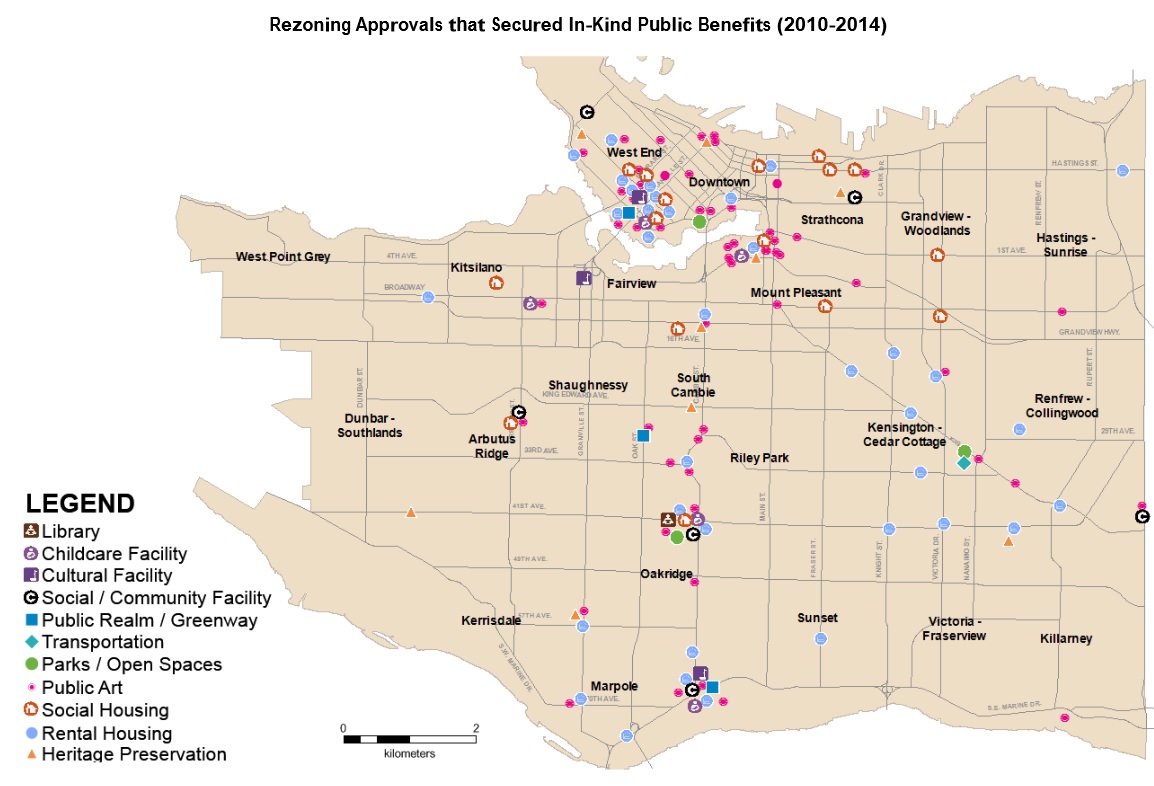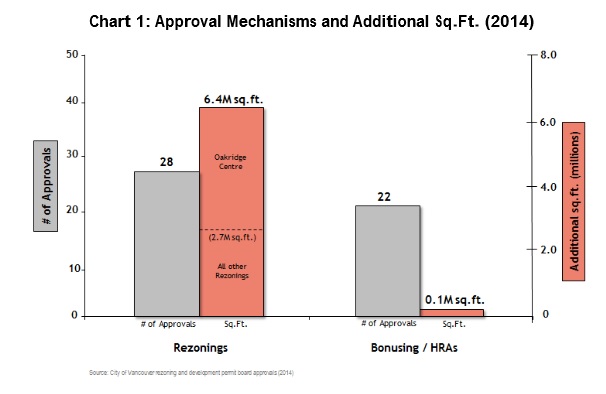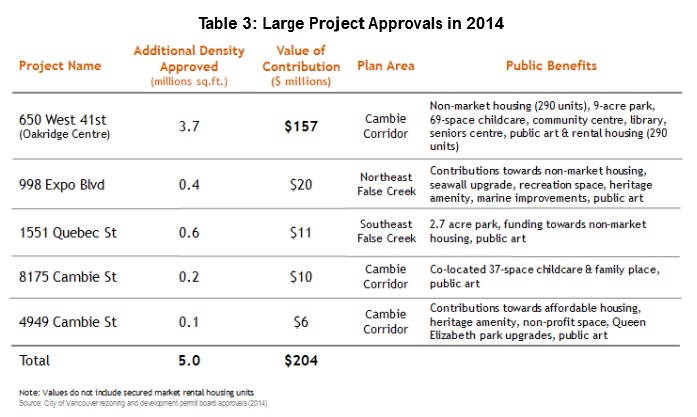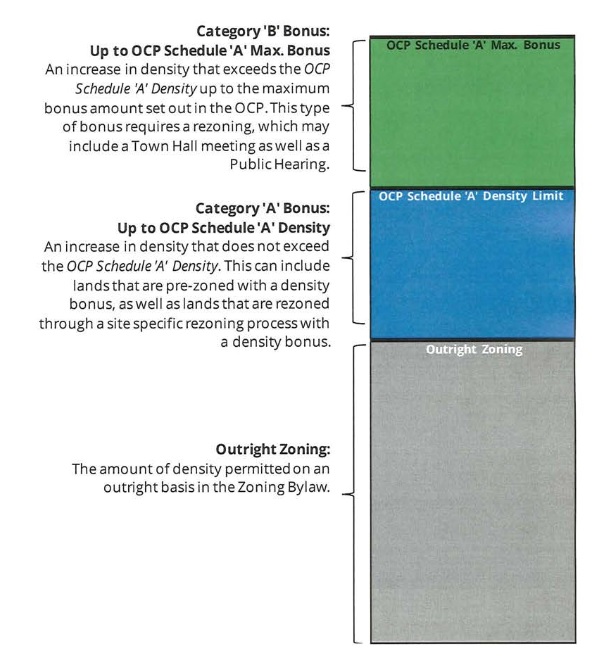The City of Vancouver has released an administrative report that provides information on Community Amenity Contributions (CACs) and Density Bonusing for 2014. These types of reports highlight some interesting market information. Of note, 2014 generated more than the previous two years combined, primarily as a result of the Oakridge Centre rezoning approval.
Here are few highlights:
-
In 2014, there were 50 approvals of additional density resulting in a net increase in floor area of 6,500,000 SF and total public benefit in the amount of $234 Million.
- The rezoning of Oakridge Centre in May 2014 represents 60% of the density and CACs generated
- 80% of the public benefits are provided as on-site contributions, and 20% were cash in-lieu
- 95% of additional density approvals aligned with recently approved community plans
- The heritage density bank has been drawn down to 800,000 SF, a 50% decrease since the creation of new heritage transfer density was put on hold in 2009
- There were 14 approvals for secured market rental housing in 2014, or 1,073 apartment units
For those interested, the report provides a full list of all rezoning applications approved by Council in 2014 that generated additional density and public benefits.








